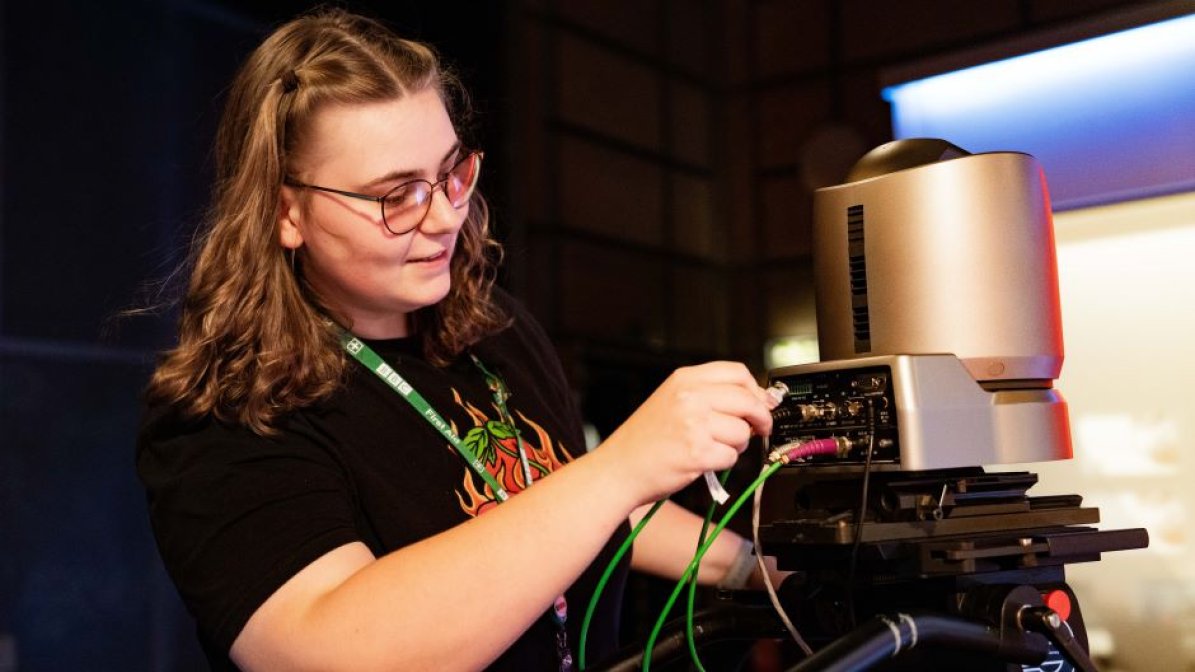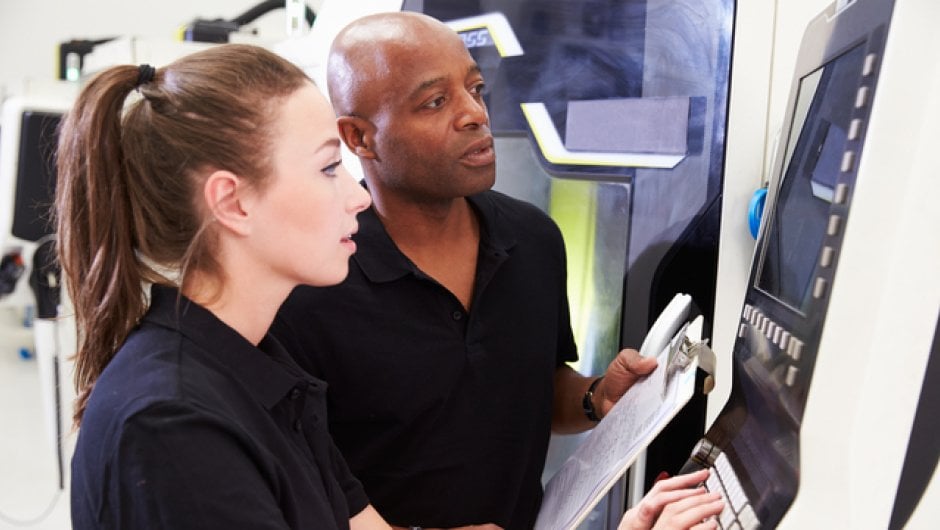The impact you could make
- Use the latest technology to improve the design of hydrogen-powered cars and get them out to a wider market
- Deploy artificial intelligence to analyse a space flight simulation and avoid costly mistakes
- Learn about quantum computing and use it to pin down fraudsters cleverly hiding their illegal financial transactions
What you could study
- Algorithms and programming
- Energy systems
- Mathematical principles
- Digital systems
- Electronic engineering
- Engineering materials and design
- Engineering science
- Computer-aided design and manufacturing
- Product design and development
- Augmented reality prototyping
Chat to a current engineering and technology student
Chat to a current engineering and technology student using UniBuddy.
Some conversation starters for you:
- Ask which modules they really enjoyed.
- Find out how easy it was for them to make friends on their course.
- Do they have any tips on your personal statement?
- Did they do anything to prep for uni before they went?
- Are there books, podcasts or YouTube channels they would recommend?
Example module
Example project
Subjects it's useful to have studied first
Some engineering and technology courses or apprenticeships will have requirements for previous qualifications in certain subjects.Maths
Physics
Computing
Design
Hard skills you'll develop
- Project engineering
- Project management
- Procurement
- New product development
Soft skills you'll develop
- Communication
- Management
- Planning
- Teaching
Careers: Where it can take you
Find out more about your career prospects from studying engineering and technology. The following information is based on a typical engineering professional role.Available jobs
Average salary
Career options
Engineering and manufacturing
Building and construction

What is a… broadcast engineer?
You may be able to take a good guess at what a broadcast engineer does… they work at TV and radio stations, and other venues, making sure broadcasts go out on time and in good audiovisual quality. They get to work in studios and out on location, setting up or installing technical equipment and software, which will enable a programme to be transmitted. They may also live edit programmes, and deal with technical issues as they're happening. You may need an additional qualification or extra training to qualify for the specific role requirements.
Find your ideal career
Take our careers quiz to find your ideal job matched to your personality type.Getting in: Entry requirements
Find out more about what you'll need to study engineering and technology at university or as an apprenticeship.
Average requirements for undergraduate degrees
Entry requirements differ between university and course, but this should give you a guide to what is usually expected from engineering and technology applicants.
A levels
Scottish Highers
Vocational
Other

Engineering apprenticeships
Check out our industry guide to help you decide if an engineering apprenticeship might be the right choice for you.Let’s talk about... engineering apprenticeships
Listen to our brand new podcast all about degree apprenticeships in engineering. Find out about funding, what day-to-day life is like, making friends, and more from our expert panel.
Considering an apprenticeship?
Applying for an apprenticeship is just like applying for a normal job. Here’s what you need to know:-
1
Deadline
Apprenticeships don't follow the same deadlines as applying to uni, the deadline is down to the employer. -
2
Where to apply
You apply directly through the employer. -
3
No limits!
You're not restricted to one apprenticeship application; you can do as many as you like. -
4
Apply to university and apprenticeships
There's nothing stopping you applying to university through UCAS, while also applying for apprenticeship vacancies. -
5
Find out more
Read our guide to engineering and manufacturing apprenticeships.

Apprenticeship vacancies
Check out live apprenticeship vacancies in engineering and technology.Explore further
Go deeper into topics around chemical engineering with the following.-
1
Royal Academy of Engineering
Follow the Royal Academy of Engineering on YouTube to see videos about the sector, job roles, and discussions on key issues like climate change and advancing technologies.
-
2
The Institution for Engineering and Technology (IET)
Check The Institution for Engineering and Technology (IET) student page, with case studies on existing engineering and technology students, videos on solving problems engineering students might face, and lots of other resources.
-
3
Green Jobs
Use the Green Jobs website to search for green engineering and technology jobs, and to help you work out what subjects and skills you might need for jobs in clean energy and sustainability.
-
4
Engineer girl
Watch these Engineer girl videos with female engineers working in different fields to get you inspired!
Engineers develop products and services for everyone, and their work touches every aspect of our lives. They play a central role in advancing the world around us and finding solutions to global challenges, such as tackling climate change and restoring our planet. As an engineer, you can bring ideas and innovations to life, turn dreams into reality, and change our world for the better. Jobs today cover everything from designing our future cities and innovative transport systems, to coming up with new healthcare technologies and exploring space. With technology advancing at a rapid rate, engineering is ever changing and developing – providing limitless opportunities for all those interested in becoming an engineer.
Application advice
Whether it's personal statement tips or what to write in a cover letter for an apprenticeship application, our application advice will help you get ahead in your engineering and tehcnology journey.- Show your enthusiasm for the subject, with examples, such as any relevant work experience or voluntary work you’ve done. Mention if you’re a member of any related societies and clubs too, and how they’ve inspired you to explore these subjects further.
- Have you got any interesting hobbies that are relevant to these subjects? Do you like making things, and figuring out how machines and electrical products work? What will make you stand out from other engineering and technology applicants?
- Where do you see yourself working afterwards? If you’re interested in medical technology, healthcare, or renewable energy, talk about what you hope to do and relate it back to the course. You could also mention work experience or content you’ve read that’s inspired you to work in a particular field.
- What hobbies and attributes can you talk about that illustrate your curiosity, creativity and initiative? Maybe you like to fix things at home and have come up with clever solutions for that window that always lets a draft in, or the bathroom door that won’t shut properly? Or maybe you’ve tweaked some smart tech around the house to make it work better for you.
- Think of ways to demonstrate other qualities that engineering and technology students might need, like technical skills, teamwork and leadership, or the ability to problem-solve. You’ll find you’ll have done work at school or during extracurricular activities that show you have what it takes.

Personal statement guide
We asked admissions tutors to share their dos and don’ts for writing a strong and engaging engineering and technology personal statement. Here's what they told us.














